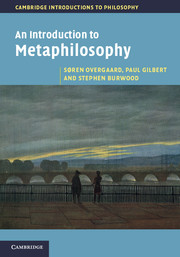3 - Philosophy, science and the humanities
Published online by Cambridge University Press: 05 March 2013
Summary
Introduction
Recently, Stephen Hawking boldly declared that philosophy is dead. ‘Philosophy’, he explains, ‘has not kept up with modern developments in science, particularly physics. Scientists have become the bearers of the torch of discovery in our quest for knowledge’. As a result, he claims, philosophical discussion has become outdated and irrelevant. If Hawking is right, philosophy belongs to a past we have finally put behind us; it has no future.
Of course, despite itself, Hawking’s claim voices a philosophical view, one based on a number of contentious and unacknowledged assumptions about the nature of philosophy. It appears to be a ‘residue’ view of philosophy which conceives of philosophy as a cognitive enterprise and an earlier, unsystematic and failed attempt to explain the natural world, in competition with physics and the special sciences. On this view, as explained in Chapter 2, incrementally (over the years and bit by bit), philosophy has found its subject matter become the business of natural science until it has been left with the ‘gaps’; that is, those questions, such as ‘Why does the universe exist?’, to which natural science has found difficulty offering an answer. But now, or so Hawking thinks, even this sort of inquiry is susceptible to scientific treatment, leaving philosophy outmoded and its purpose usurped.
- Type
- Chapter
- Information
- An Introduction to Metaphilosophy , pp. 45 - 69Publisher: Cambridge University PressPrint publication year: 2013

